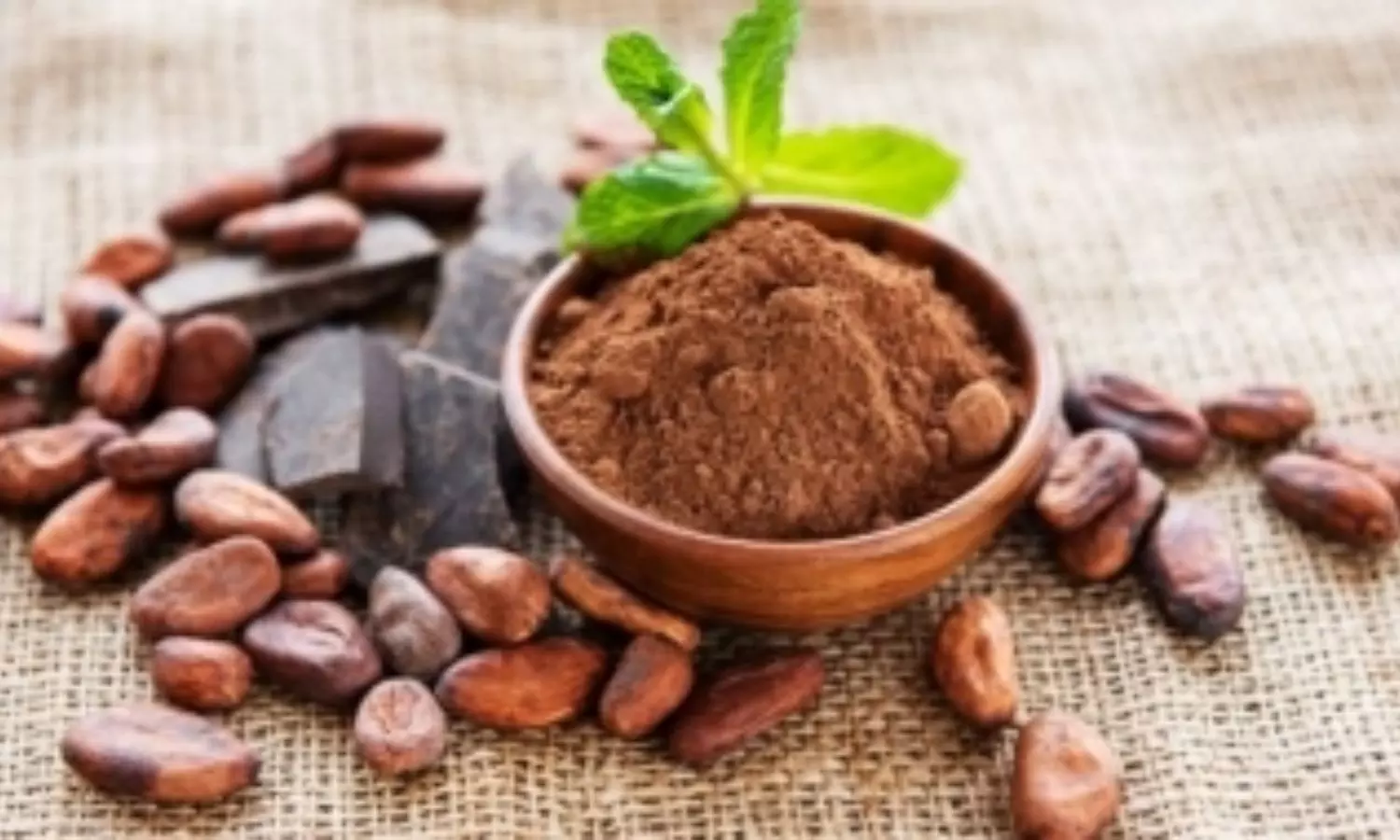Study finds cocoa extract supplement reduced key marker of inflammation and aging
- byDoctor News Daily Team
- 29 September, 2025
- 0 Comments
- 0 Mins

Could cocoa extract supplements rich in cocoa flavanols reduceinflammationand, in turn, prevent age-relatedchronic diseases? In a new study from the COcoa Supplement and Multivitamin Outcomes Study (COSMOS), investigators from Mass General Brigham and their colleagues looked at changes in five age-related markers of inflammation among participants who received daily cocoa supplements over several years. They found that hsCRP-an inflammatory marker that can signal increased risk ofcardiovascular disease-decreased in participants taking the cocoa extract supplement, suggesting its anti-inflammatory potential may help explain its heart-protective effects. Their results are published inAge and Ageing. Nutritional interventions have become an increasingly attractive solution for slowing inflammatory aging, so called “inflammaging.” Cocoa extract has been shown in previous, smaller studies to reduce inflammatory biomarkers, thanks to flavanols—small, bioactive compounds found not only in the cocoa bean but also berries, grapes, tea, and other plant-based foods. To bridge the gap between these studies and humans, researchers launched the large-scale COSMOS trial, which examines the effects of cocoa extract on cardiovascular disease, and whether inflammaging may explain those effects. “Our interest in cocoa extract and inflammaging started on the basis of cocoa-related reductions in cardiovascular disease,” said corresponding author Howard Sesso, ScD, MPH, associate director of the Division of Preventive Medicine and associate epidemiologist at Brigham and Women’s Hospital, a founding member of the Mass General Brigham healthcare system. “We also appreciate the important overlap between healthy aging and cardiovascular health, where aging-related inflammation can harden arteries and lead to cardiovascular disease. Because of that, we wanted to see whether multi-year cocoa extract supplementation versus a placebo could modulate inflammaging-and the data suggests it does.” Between 2014 and 2020, Brigham and Women’s Hospital led the COSMOS trial, a large-scale, randomized, double-blind, placebo-controlled clinical trial with 21,442 participants over 60 years old, finding that cocoa extract supplementation decreased cardiovascular disease mortality by 27%. In this new study, researchers collected and analyzed blood samples of 598 COSMOS participants to measure several inflammaging biomarkers: three pro-inflammatory proteins (hsCRP, IL-6, and TNF-α), one anti-inflammatory protein (IL-10), and one immune-mediating protein (IFN-γ). Comparing changes in these biomarkers measured at baseline, 1, and 2 years follow-up, hsCRP levels decreased by 8.4% each year compared with placebo, while the other biomarkers remained relatively consistent or increased modestly. “Interestingly, we also observed an increase in interferon-γ, an immune-related cytokine, which opens new questions for future research,” said senior author Yanbin Dong, MD/PhD, Director of the Georgia Prevention Institute (GPI) and cardiologist/population geneticist at the Medical College of Georgia/Augusta University. “While cocoa extract is not a replacement for a healthy lifestyle, these results are encouraging and highlight its potential role in modulatingi nflammation as we age. The decrease in hsCRP may help explain the cardio-protective effects seen with cocoa extract supplement in the larger COSMOS trial, where participants experienced a reduction in cardiovascular disease death. Researchers said that changes in the other inflammaging markers, including a small reduction in IL-6 observed in female but not male participants, warrant additional study. The team will continue to evaluate the COSMOS trial to determine whether the cocoa - and multivitamin - regimens can curb more severe inflammaging, as well as other important aging-related health outcomes. “This study calls for more attention to the advantage of plant-based foods for cardiovascular health, including cocoa products rich in flavanols,” added Sesso. “It reinforces the importance of a diverse, colorful, plant-based diet-especially in the context of inflammation.” Sidong Li, Rikuta Hamaya, Haidong Zhu, Allison Clar, Pamela M Rist, Ying Huang, JoAnn E Manson, Howard D Sesso, Yanbin Dong, Effects of 2-year cocoa extract supplementation on inflammaging biomarkers in older US adults: findings from the COcoa Supplement and Multivitamin Outcomes Study randomised clinical trial, Age and Ageing, Volume 54, Issue 9, September 2025, afaf269, https://doi.org/10.1093/ageing/afaf269
Disclaimer: This website is designed for healthcare professionals and serves solely for informational purposes.
The content provided should not be interpreted as medical advice, diagnosis, treatment recommendations, prescriptions, or endorsements of specific medical practices. It is not a replacement for professional medical consultation or the expertise of a licensed healthcare provider.
Given the ever-evolving nature of medical science, we strive to keep our information accurate and up to date. However, we do not guarantee the completeness or accuracy of the content.
If you come across any inconsistencies, please reach out to us at
admin@doctornewsdaily.com.
We do not support or endorse medical opinions, treatments, or recommendations that contradict the advice of qualified healthcare professionals.
By using this website, you agree to our
Terms of Use,
Privacy Policy, and
Advertisement Policy.
For further details, please review our
Full Disclaimer.
Recent News
AbbVie concludes acquisition of Gilgamesh Pharma B...
- 21 October, 2025
Dr Soumya Swaminathan conferred Honorary Doctorate...
- 21 October, 2025
Bengaluru Dermatologist Sent to Judicial Custody A...
- 21 October, 2025
Daily Newsletter
Get all the top stories from Blogs to keep track.


0 Comments
Post a comment
No comments yet. Be the first to comment!